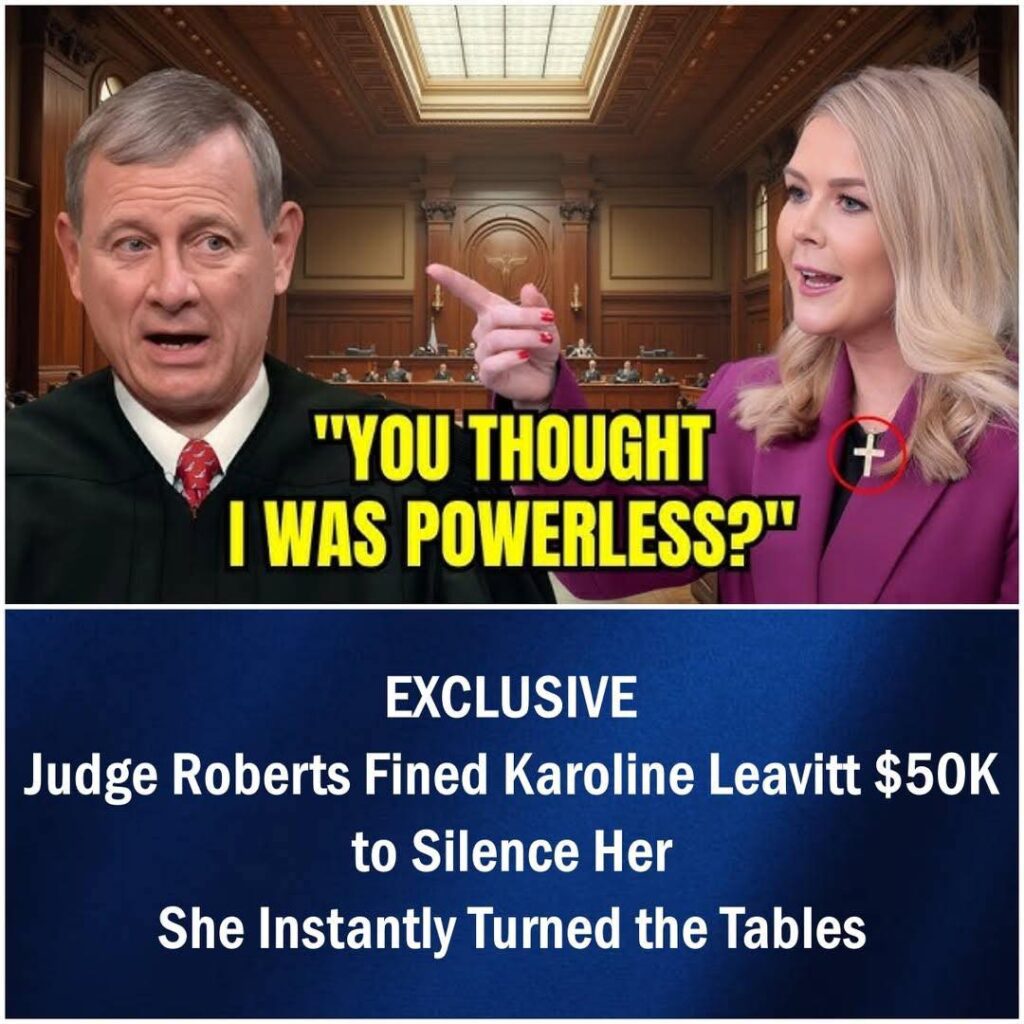In a dramatic turn of events at a Washington, D.C. federal courthouse, Caroline Leavitt, former press secretary under President Trump, challenged a $50,000 fine levied against her for allegedly violating the Federal Communications Act. The case, initially overseen by Chief Justice John Roberts, took an unexpected trajectory when Leavitt demanded the opportunity to present her defense.
Roberts, citing the case as straightforward, initially denied her request. However, Leavitt’s insistence on due process led to a recess and the introduction of Judge Samuel Coleman, known for his impartiality. Under Coleman’s oversight, Leavitt articulated her defense, referencing key Supreme Court cases and highlighting the absence of concrete evidence against her.
The prosecution’s lack of documentation became evident when the investigator admitted to having no supporting evidence. Leavitt’s argument emphasized the broader implications of unchecked governmental power and the importance of safeguarding individual rights.
Judge Coleman ultimately dismissed the charges, citing insufficient evidence. Leavitt’s courtroom stance has since ignited discussions across the nation regarding the balance of power within the judicial system and the rights of individuals facing governmental scrutiny.
This case underscores the critical role of the Department of Justice in ensuring justice and the importance of legal education. For those interested in pursuing a career in law, obtaining an MA in the USA can provide the necessary foundation to navigate and influence such pivotal legal landscapes.
As debates continue, the implications of Leavitt’s case resonate, prompting a reevaluation of legal processes and the enduring significance of due process in the United States.





